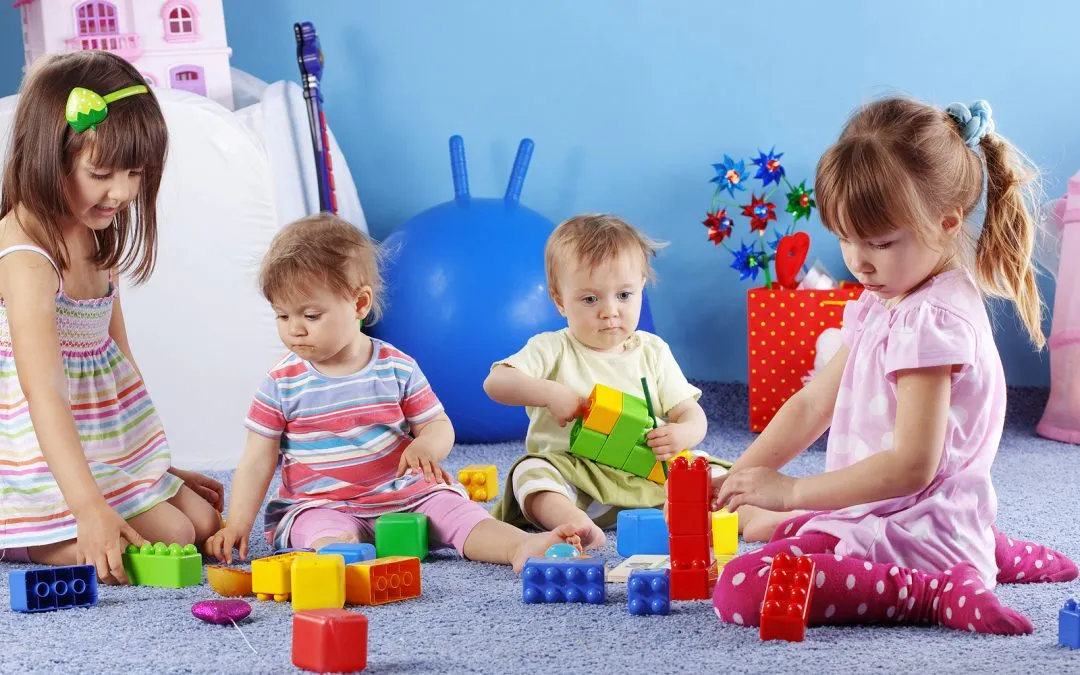Social interaction is a cornerstone of child development, influencing emotional, cognitive, and behavioural growth. From early playdates to structured group activities, the experiences children have with peers and adults shape their understanding of the world and equip them with essential life skills.
For families exploring options creating opportunities for meaningful social engagement is an important consideration. High-quality child care environments foster interactions that help children develop communication skills, empathy, and resilience, laying a strong foundation for future success.
This guide delves into the importance of social interaction in childhood, the stages of social development, and practical ways to support it at home and in group settings.
Why Social Interaction Matters in Childhood
Social interaction is more than just play; it’s a critical component of learning and growth. Through interactions, children gain the ability to connect with others, manage emotions, and develop problem-solving skills. These abilities not only help them navigate childhood but also prepare them for life’s challenges.
Key Benefits of Social Interaction:
- Language Development: Engaging with others helps children learn new words, sentence structures, and social nuances in communication.
- Emotional Intelligence: Interacting with peers teaches children to recognise and manage their own emotions while understanding others’ feelings.
- Conflict Resolution: Social situations provide opportunities for children to navigate disagreements and practice negotiation.
- Cognitive Growth: Group activities and conversations challenge children to think critically and creatively.
- Building Confidence: Positive interactions with others help children develop self-esteem and a sense of belonging.
Stages of Social Development in Children
Children progress through distinct stages of social development, each building on the last. Understanding these stages can help parents and educators provide the right support and encouragement at the right time.
1. Infancy (0–12 Months): Bonding and Attachment
During infancy, social interaction focuses on forming secure attachments with caregivers. Babies communicate through cries, coos, and facial expressions, learning that their needs will be met.
Key Activities:
- Responding to a baby’s cues with warmth and consistency.
- Encouraging face-to-face interactions, such as smiling and talking.
2. Toddlerhood (1–3 Years): Parallel Play and Exploration
Toddlers begin to observe and imitate others, engaging in parallel play where they play alongside but not directly with peers. Social skills like sharing and taking turns start to develop.
Key Activities:
- Providing opportunities for group play in safe, supervised settings.
- Encouraging simple turn-taking games or activities.
3. Early Childhood (3–5 Years): Cooperative Play and Social Skills
Preschoolers transition to cooperative play, where they engage in shared activities and begin forming friendships. They learn essential social behaviours like empathy, compromise, and teamwork.
Key Activities:
- Organising playdates and group activities.
- Teaching children to express emotions and resolve conflicts.
4. Middle Childhood (6–12 Years): Peer Relationships and Independence
As children grow, peer relationships become more significant. They develop a sense of identity and explore group dynamics, often seeking approval and acceptance from friends.
Key Activities:
- Supporting involvement in clubs, sports, or group projects.
- Encouraging open conversations about friendships and feelings.
The Role of Play in Social Interaction
Play is the primary way children learn and practice social skills. Through play, they experiment with roles, express creativity, and navigate social dynamics in a low-pressure environment.
Types of Play That Foster Social Development:
- Pretend Play: Activities like playing house or dressing up encourage imagination and role-playing, helping children understand different perspectives.
- Team Games: Sports or group games teach cooperation, communication, and leadership.
- Creative Play: Building with blocks, drawing, or crafting in a group setting promotes collaboration and sharing ideas.
Encouraging Social Interaction at Home
Parents play a vital role in fostering social interaction by creating a supportive and stimulating home environment. Everyday activities provide ample opportunities to strengthen social skills.
1. Model Positive Social Behaviour
Children learn by observing adults. Demonstrating respectful communication, empathy, and problem-solving shows children how to interact effectively with others.
Tips:
- Use polite language and active listening in family conversations.
- Resolve conflicts constructively in front of children.
2. Encourage Family Activities
Family activities like game nights or shared meals provide opportunities for interaction and bonding.
Ideas:
- Play board games that require taking turns and following rules.
- Engage in collaborative cooking or DIY projects.
3. Arrange Playdates and Outings
Regular playdates and outings expose children to different social settings and personalities, broadening their social skills.
Suggestions:
- Visit parks, libraries, or community centres where children can meet peers.
- Join parent-child classes or community groups.
Supporting Social Interaction in Educational Settings
Educational environments, such as child care centres, provide structured opportunities for social interaction under the guidance of trained professionals.
Benefits of Group Learning:
- Encourages teamwork and collaboration.
- Promotes diversity and inclusion by exposing children to different backgrounds and perspectives.
- Develops a routine that helps children feel secure and confident in group settings.
How Educators Foster Social Development:
- Organising group activities like storytime, art projects, or cooperative games.
- Teaching social-emotional skills through role-playing or guided discussions.
- Intervening gently in conflicts to help children learn constructive resolution strategies.
Challenges in Social Development and How to Address Them
Some children may face challenges in social interaction, such as shyness, anxiety, or difficulty managing emotions. Identifying and addressing these challenges early can prevent them from becoming barriers to development.
Common Challenges:
- Shyness: Children who are shy may hesitate to engage with peers or join group activities.
- Aggression: Some children struggle to manage frustration, leading to conflicts with others.
- Communication Delays: Difficulty with language can hinder a child’s ability to express themselves or understand others.
Strategies to Overcome Challenges:
- Encourage Gradual Exposure: Start with small, familiar groups before introducing larger social settings.
- Build Confidence: Praise positive interactions and celebrate small successes.
- Seek Professional Support: If challenges persist, consult a paediatrician, speech therapist, or child psychologist for guidance.
The Lifelong Impact of Social Interaction
The skills children develop through social interaction extend far beyond childhood, shaping their relationships, careers, and overall well-being.
Long-Term Benefits of Strong Social Skills:
- Emotional Resilience: Ability to navigate stress, setbacks, and interpersonal challenges.
- Workplace Success: Effective communication and teamwork skills are highly valued in professional settings.
- Healthy Relationships: Empathy and conflict resolution lay the foundation for strong personal connections.
By investing in social development early, we prepare children for a fulfilling and connected life.
Final Thoughts: Building a Connected Future
Social interaction is a vital element of child development, influencing emotional, cognitive, and behavioural growth. From the early days of bonding with caregivers to forming friendships and navigating group dynamics, each stage of social development equips children with skills that will serve them throughout life.
Whether through activities at home, playdates, or structured environments like child care Hurstville, providing opportunities for meaningful social engagement is essential. By creating supportive and inclusive spaces where children can explore, connect, and learn, we nurture their curiosity, confidence, and capacity for empathy.
Together, parents, educators, and communities can build a future where every child feels valued, capable, and ready to thrive in a socially connected world.





